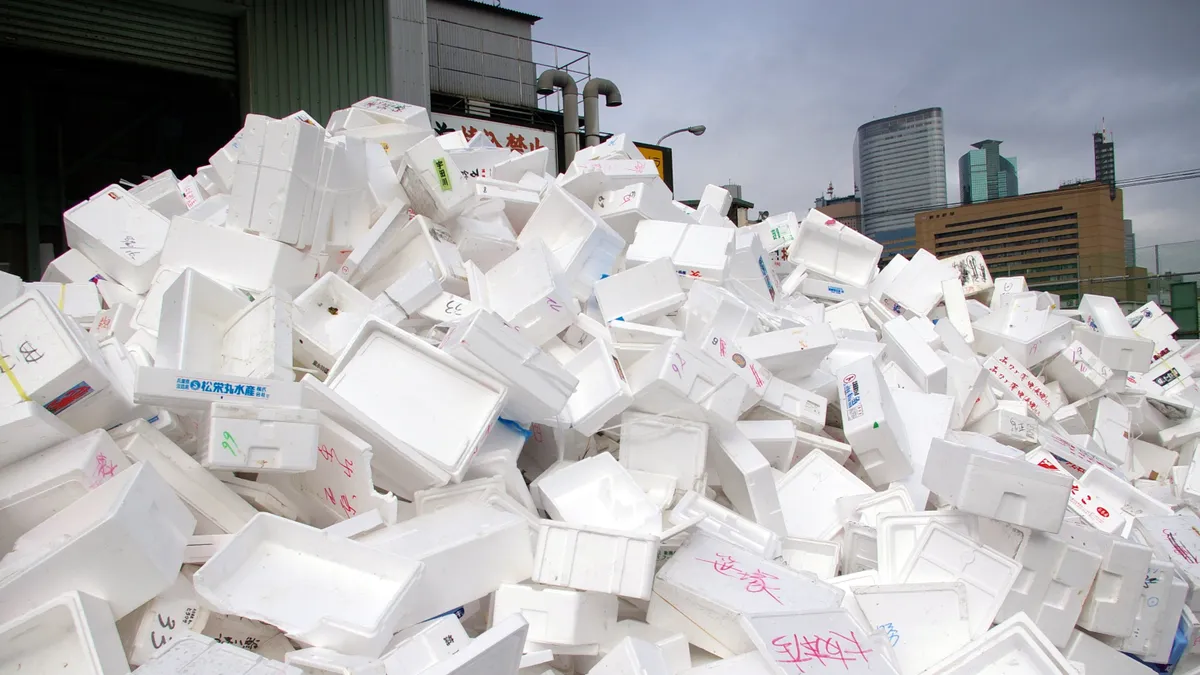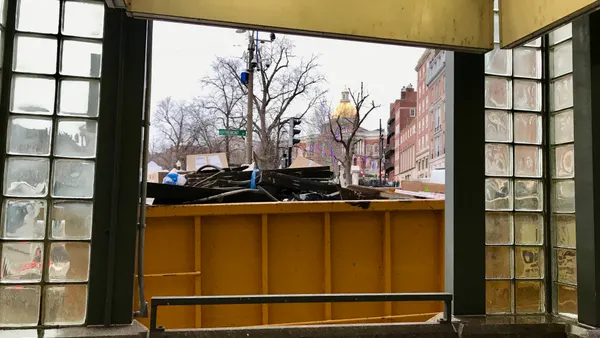A newly-unveiled Agilyx plant in Tigard, Ore. is getting attention for the possibility that it could revolutionize polystyrene (PS) recycling with its circular chemical recycling system.
The plant accepts PS feedstock "in any form. It can foam, it can be rigid ... We can process any form of polystyrene" and de-polymerize it into a styrene monomer oil, Vice President of Operations Brian Moe told Waste Dive.
The Agilyx PS-to-oil plant opened last month and is the first in the United States to process the material in this way at this commercial scale. "It’s very satisfying to tackle a difficult problem and come up with really innovative solutions," Moe said.
Much of the feedstock comes from local or regional suppliers, largely due to transportation costs, but there are "people as far away as North Carolina and Canada trying to find ways to get us polystyrene to recycle," Moe said. The plant has the capacity to process 10 tons of PS each day, and it’s currently working to get up to that point as Agilyx expands its customer base.
The monomer oil "goes right back into the manufacture of styrene. [Customers] blend it with the raw version of styrene" to make a variety of new products, Moe said. Using a recycled oil for manufacturing means less natural oil is extracted from the earth to make plastic products.
Agilyx has a bit more wiggle room for certain types of contamination — such as "dirty" food containers — than businesses that process PS in other ways. The business therefore doesn't necessarily require the same level of material separation or cleaning prior to processing.
"We do have standards," Moe said, noting that Agilyx is not "accepting straight garbage and separating it." But the business can take in "different colors of polystyrene, different forms of polystyrene, we can mix that all together. Food contamination we tend to blend in… We just mix it in with other products and process it," Moe said. He noted a partnership with school districts that send Agilyx used foam food trays which are then mixed in with other feedstock for processing.
When Agilyx launched 14 years ago, the company was focused on developing technology to convert mixed plastics into high-quality crude oil. "Our technology was very successful," Moe said. But when the oil market dropped a couple of years ago, Agilyx "adopted the same technology to focus on polystyrene. It's not widely different from what we've done and we have a lot of knowledge around the various polymers and how to convert them to different chemicals."
The company still has its mixed plastics platform in addition to the new PS de-polymerization system, and it's performing research and development on recycling other polymers. Moe anticipates the company will expand with additional PS recycling plants, as well as some for other polymers.
"I think we have a solid base of knowledge around how to do chemical recycling. I’m not going to say it's easy, but it’s a natural step to get into other types of polymers," Moe said. "This is a really good solution to increase recycling overall. I think the industry wants to see a circular economy solution for plastics recycling in general, and polystyrene in particular."










